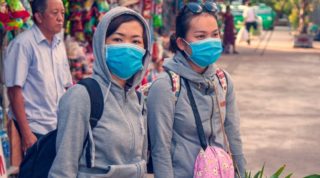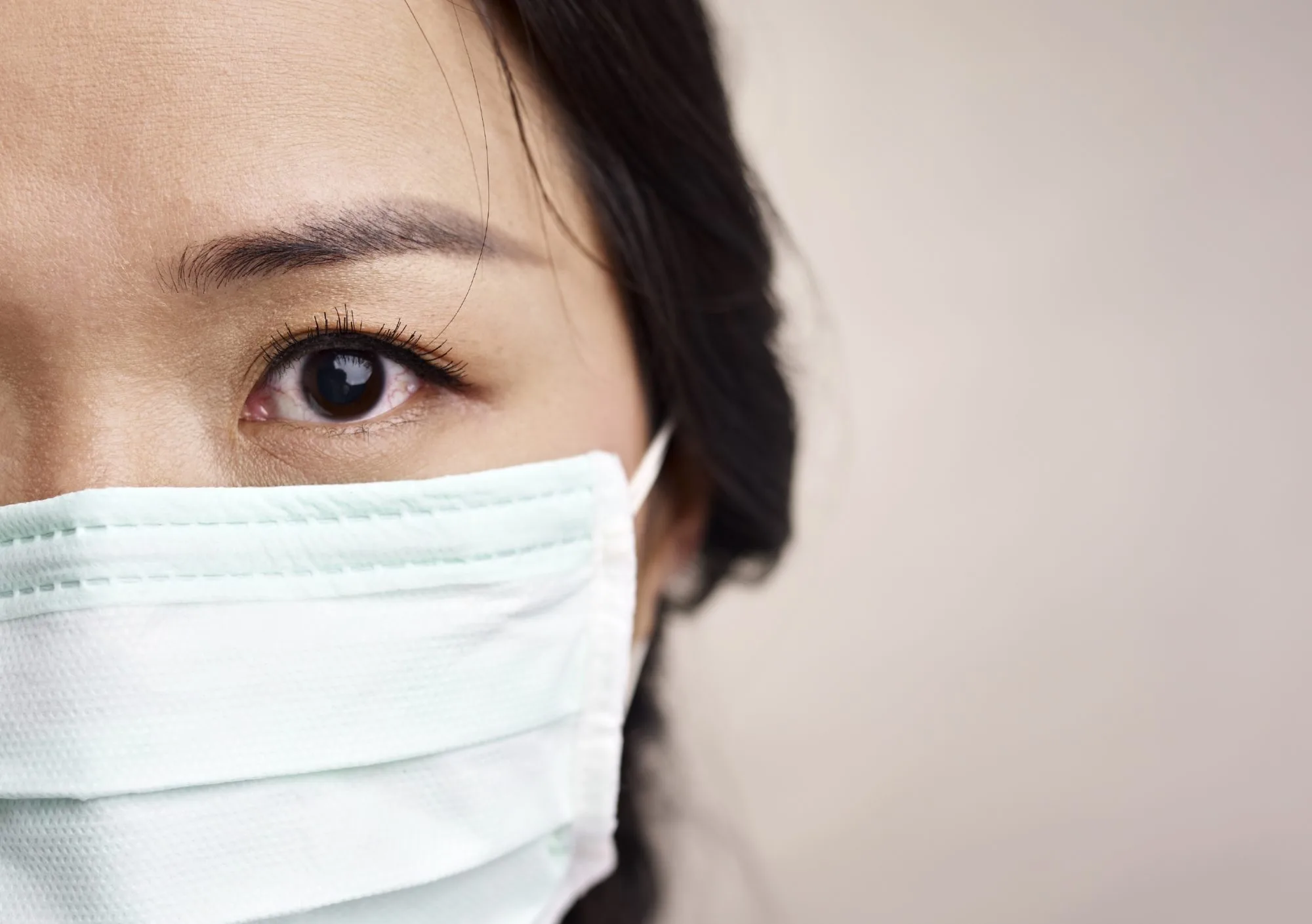As the number of cases associated with the coronavirus continues to rise, in the midst of the panic, people have turned to measures that they believe will help to protect them against the virus. As a result, the demand for face masks has sky-rocketed in the past few weeks.
In fact, authorities in the Chinese city of Wuhan, also known as the origin of the coronavirus, have now made it mandatory for the public and officials to wear face masks at all times in public places. Failure to do so will result in punishment. That said, the demand for face masks has now resulted in many companies viewing it as a money-making scheme. As such, Facebook announced that it would be banning all ads and listings for face masks which falsely suggests that they are in limited supply (in order to create a sense of urgency), as well as other ads that promote fake “cures” or prevention methods for the coronavirus.
“We’re banning ads and commerce listings selling medical face masks,” said Facebook Director of Product Management Rob Leathern, who leads the product team that enforces ad and business policies across the company’s services. “We’re monitoring COVID19 closely and will make necessary updates to our policies if we see people trying to exploit this public health emergency. We’ll start rolling out this change in the days ahead.”
Facebook is not the only company making moves. Both Amazon and eBay have altered their rules, with Amazon removing third-party listings that have raised prices for hand sanitizers and face masks, while eBay has revealed plans to ban all sales of face masks, hand sanitizers, and disinfectant wipes in an effort to stem price gouging. In fact, the company has already removed more than 20,000 listings to make unverified claims related to coronavirus.
With such a huge demand and need for face masks, one really has to wonder just how effective they are in protecting people against the coronavirus. Do the masks work or are they simply a psychological coping mechanism whereby individuals wear them in order to get through the day? 
Let’s find out.
Coronavirus and face masks
The coronavirus is mainly spread from person to person with the infected party either coughing or sneezing, which then lets out respiratory droplets into the air that carry the virus. These droplets may either land in people’s mouths or noses or are inhaled into their lungs. The infected person may also spread the virus if they touch their eyes and nose then touch another person or surface. That said, a person may also become infected by touching a surface that contains droplets.
A piece published in The Journal of the American Medical Association (JAMA) concluded that face masks should be worn by people who have symptoms of a respiratory infection, as well as health care workers and caretakers of those with respiratory infections. That said, the piece did make sure to note that there is little evidence that face masks are effective in preventing healthy people from becoming ill.
Nonetheless, as the coronavirus is usually transmitted through the air, it’s no wonder that the demand for face masks has exponentially grown. In fact, a study published in the International Society for Infectious Diseases journal found that, when used correctly, face masks can help to reduce the risk of flu by around 80%.
Additionally, face masks were found to play a role in slowing down the speed of the severe acute respiratory syndrome (SARS) epidemic in 2003 (1).
When it comes to face masks, there are two types that people look towards in an effort to protect themselves. These masks are surgical face masks(the ones we’ve seen plastered all over the news, and also used by medical health professionals) and respirators, also known as N-95 masks. According to the Centers for Disease Control and Prevention (CDC), N-95 masks filter out about 95% of airborne particles, including viruses and bacteria.
Surgical masks
These types of masks have become so popular that there is now a concern about shortages as medical health professionals use them on a daily basis.
US Surgeon General Dr. Jerome Adams went on Twitter pleading for the public to stop buying surgical masks as it creates shortages for healthcare providers, which then places them, as well as their community, at risk.
Seriously people – STOP BUYING MASKS!
They are NOT effective in preventing the general public from catching #Coronavirus, but if healthcare providers can’t get them to care for sick patients, it puts them and our communities at risk!
https://t.co/UxZRwxxKL9— U.S. Surgeon General (@Surgeon_General) February 29, 2020
Furthermore, Robert Redfield, director of the Centers for Disease Control and Prevention, spoke to the House Foreign Affairs Committee and emphasized the importance of making sure that masks remain available for doctors and nurses, as well as for people tending to loved ones with the illness.
“There is no role for these masks in the community,” he said. “These masks need to be prioritized for health care professionals that as part of their job are taking care of individuals.”
“There are severe strains on protective equipment around the world,” said Dr. Michael J. Ryan, executive director of the health emergency program at the World Health Organization. “Our primary concern is to ensure that our front line health workers are protected and that they have the equipment they need to do their jobs.”
How well do they work?
The thin surgical masks are intended for surgeons, as they help to keep out viruses and pathogens.
Yes, in the day-to-day happenings of the world, these masks can, to a degree, protect against fluids – be it from a cough or sneeze. However, that’s not enough. As they’re so thin and loose-fitting, they do not provide enough protection around the nose and mouth. As such, small droplets can still seep in through the parts of the mask.
That said, the CDC only recommends surgical masks for those who have already displayed symptoms of the coronavirus and are planning on leaving the house. Doing so will help to ensure that the infected do not spread the virus. Additionally, it would also be advisable for the caregivers of the infected to wear the mask. It should be remembered that people wearing these masks need to dispose of them after each use.
N-95 masks
Commonly used by construction workers, these masks are form-fitted to your face.
Unfortunately, they’re not very comfortable. They can make it hard to breathe, thus making it difficult to wear for long periods of time. What’s more, a lot of people don’t know how to put them on properly. As such, it makes the whole wearing a mask thing null and void. In fact, health care workers who routinely wear N95 masks are required to undergo a fitness test at least once a year to ensure that there are no gaps around their mouths.
The CDC does not recommend N95 respirators for use by the public.
Should I get a mask?
With celebrities such as Gwyneth Paltrow plastering their social media with masked selfies, it can be hard for people not to assume that face masks are the best way to protect themselves.
That said, it’s important to take note of a few things. Firstly, a lot of people may not know how to properly wear a mask. Therefore, how well the masks work largely depends on how well you wear them. That said, not owning a mask does not necessarily mean that you’re going to contract the disease.
If you do become infected, it’s important that you stay home and allow yourself to recover. If you really need to go out, then yes, wear your masks. Doing so will help to protect others from getting infected.
However, wearing a mask is not the end-all when it comes to protecting yourself against the disease. Yes, masks can be effective in helping to keep out droplets, but it’s not iron-clad. The virus can still be transmitted in other ways. If you plan on visiting areas that have been infected, then it would be advisable to wear a mask. However, that’s not all you should do. In fact, there are other effective measures you can take to protect yourself.
How can I better protect myself?
If you want to protect yourself and your community, take note of these preventative actions;
- Stay home when you are sick.
- Regularly wash your hands with soap and water for a period of 20 seconds (an entire happy birthday song). Do this every time you use the bathroom and before meals.
- Invest in a hand sanitizer
- Cover your mouth with a tissue when sneezing
- Cough into the inside of your elbow
- Avoid contact with people displaying signs of illness (constant coughing, sneezing, as well as a runny nose)
- Try to avoid touching your face with your hands
References
Desai AN, Mehrotra P. (2020), Medical Masks, JAMA. doi:10.1001/jama.2020.2331
Lange JH, (2004). Use of disposable face masks for public health protection against SARS, Journal of Epidemiology & Community Health;58:434.
MacIntyre, C.R. et al. (2008), The First Randomized, Controlled Clinical Trial of Mask Use in Households to Prevent Respiratory Virus Transmission International Journal of Infectious Diseases, Volume 12, e328



![women [longevity live]](https://longevitylive.com/wp-content/uploads/2020/01/photo-of-women-walking-down-the-street-1116984-100x100.jpg)











One Comment